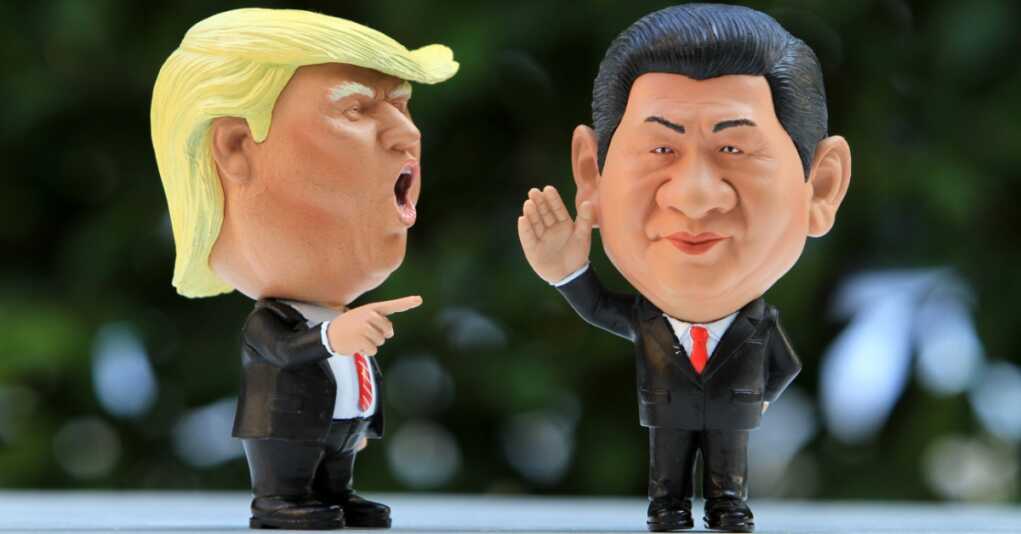Trump and Xi’s High-Stakes Hotline: Will This Call End the Trade Tantrum?

In the latest episode of the global economic soap opera, President Donald Trump is set to dial up China’s President Xi Jinping on Tuesday. This eagerly anticipated phone call comes hot on the heels of the U.S. slapping a 10% tariff on Chinese imports—a move that predictably prompted Beijing to throw its own tariff-laden tantrum.
According to Trump’s trade adviser, Peter Navarro, this conversation is poised to be a pivotal moment in the escalating trade skirmish. Navarro, ever the master of suspense, hinted that the outcome of this chat could influence future decisions, all of which, naturally, rest in the capable hands of President Trump.
Now, let’s not kid ourselves. This isn’t just a friendly catch-up between two world leaders. The stakes are high, and the economic chessboard is set. The U.S. has accused China of being the primary source of fentanyl flooding American streets, leading to a surge in overdose deaths. In response, the Trump administration has wielded tariffs as its weapon of choice, aiming to pressure Beijing into cracking down on the illicit flow of this deadly drug.
But China’s not taking this lying down. In a swift retaliatory move, Beijing announced tariffs on select American imports and launched an antitrust investigation into Google. Because nothing says ‘we’re serious’ like going after Silicon Valley’s crown jewel.
Navarro, however, seems unfazed. He downplayed the potential impact of these tariffs on American consumers and businesses, suggesting that the administration’s actions will be guided by clear data on overdose rates, migration flows, and trade imbalances. In other words, it’s all under control, folks. Nothing to see here.
This upcoming conversation between Trump and Xi isn’t just about adjusting tariffs. It’s an opportunity to revisit the ‘Phase 1’ trade deal and address lingering issues like intellectual property rights and currency manipulation. Because if there’s one thing we’ve learned, it’s that international trade agreements are never truly settled—they’re just waiting for the next round of negotiations.
Critics argue that these tit-for-tat tariffs could backfire, leading to higher prices for consumers and potential disruptions in the global supply chain. But supporters of the President’s approach believe that these tough measures are necessary to protect American interests and force our trading partners to play by the rules. It’s a high-stakes game, and the outcome of this call could set the tone for the next chapter in U.S.-China relations.
So, as we await the outcome of this high-stakes hotline between Trump and Xi, one can’t help but wonder: Will this be the call that ends the trade tantrum, or are we in for another season of economic brinkmanship? Stay tuned, America. The next episode is about to begin.

